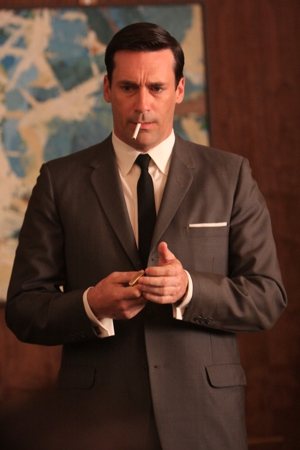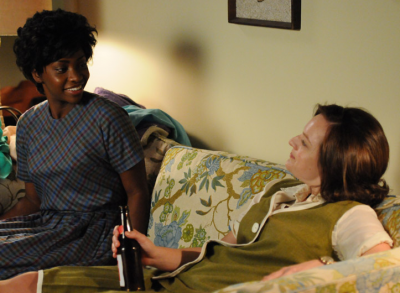Like many in higher education, I have spent most of this week in graduation ceremonies of various sorts. Like all “traditional” rituals, such events are patently invented and everyone knows it. Perhaps it was just me, but the usual evocations of the future that dominate the endless rhetoric of these gatherings seemed more than usually trite this year.
At the events I attended were graduates who had been with me at Liberty Plaza, 60 Wall Street, Washington Square Park and the other locations of Occupy. We’d marched together on October 15, November 17, March 1 and most recently on May Day. None of this intruded, of course, and I would not expect it to have done so. Platform speakers this year seemed mesmerized by Facebook and Twitter, so I expect there will be jokes about Occupy Graduation in 2017 or so.
These grumbles in the back of my mind were given some shape when I watched Slavoj Zizek give a talk called “Signs from the Future” on YouTube (it’s over an hour long so I didn’t embed it). Zizek makes a similar kind of joke imagining OWS activists meeting for lunch in ten years time–on break from their jobs on Wall Street. He was warning against this possibility and arguing for the global social movements as a space in which
one should learn the art to recognize, from an engaged subjective position, elements which are here, in our space, but whose time is the emancipated future.
This is the move that many of us call “prefiguration,” a working out of the future to come in the complex temporalities of the present. Zizek describes it as theological, drawing on Pascal’s notion of the “hidden God.” There’s a long history here, which is fine, except that as soon as there is theology, there tend to be accusations of heresy and before you know it internal divisions of the kind that you can find all over the Internet if you want.
I was more interested by his switch to media as a form of prefiguration. Like everyone else, Zizek is appalled by the current state of Hollywood “cinema” and realizes that narrative in particular has shifted to television. None of his TV examples (The Wire, The Simpsons and 24) are very current, however, and are perhaps sufficiently well ripened even for inclusion in a commencement speech.
Sitting through these events, I wondered to myself how you could use the current hit Mad Men as a cultural symptom in the manner of Zizek: which is to say, in a non-disciplinary, perhaps undisciplined fashion (for proper readings of Mad Men, see the Kritik blog series).
For the first four series Mad Men was really the Don Draper Show, in which the children of the Sixties asked themselves whether their distant, unavailable fathers maybe had more going on than they knew. Now it seems to have decided they didn’t and Don is just a Dad, sharing the stories of his first wife, once a terrible secret, as a minor plot device.
What we have instead is an ensemble drama, aka soap opera, in which the writing time and again circles around letting the upheavals of the 1960s into the narrative, only to move in a different direction.This is after all a spectacle about the spectacle, in which selling ads is both the subject of the program, and its real raison d’être. The entertainment machine, as Dana Polan calls it, knows its place in the military-industrial-entertainment complex.
The first episode of the current fifth series began with a civil rights direct action that a rival firm of ad executives literally poured water onto. The story quickly turned into a business success for “our” firm, Sterling Cooper Draper Campbell, leading to the hiring of an African-American woman as a secretary. As the show passes through 1965, race has only appeared again once, this time literally around the cash nexus.
Peggy has the new secretary Dawn stay over at her house and visibly wonders whether it’s safe to leave her handbag, which happens to have a good deal of cash from Roger Sterling in it, in the room with Dawn.
Such moments allow the presumed white viewer to have their racist frisson and disavow it at once. We “get” what Peggy is thinking, without any spoken dialogue indicating it, because “we” get how white racism works. That understanding is then at once disavowed both by Peggy herself in the plot and by the viewer. In this way, Mad Men presents long-term political struggles as minor plot moments for the well-versed TV viewer.
The fully explored pleasures in Mad Men are not really the smoking, sex and drinking that provide many plot points, so much as the repeated pleasure of the sale. In this period at least, there are an apparently endless stream of American manufacturing companies making money and looking for advertising. Cars and airlines are the jewels in this crown but the show invests most time this season in a protracted “get” of Heinz Baked Beans. New things are everywhere, from LPs to acid, and money flows as a result. Literally in the background of one episode, a newscaster talks about Vietnam.
Perhaps the real question to ask, then, is why so many seem to expect and hope that Mad Men will “deal” with the radical side of the Sixties. Bear in mind that for all the attention, this is a very niche show: 3.5 million watched the première but it’s down to 2.2 or so now and over half the viewing audience is over 49. The show works because the majority audience know how things turn out in the wider context and have become used to celebrating such victories as civil rights that are now part of almost any evocation of the “future.” That is, as so many commencement speeches will have had it, “we” triumphed over past adversities and so we will again.
More than this rather simple pay-off, I think there’s an investment (and yes, I’m using these terms on purpose) both in mass media as potentially significant cultural forms and in our own skills as readers of those forms.
For all the intricacy and subtlety of television drama narrative in shows like The Wire, The Sopranos and indeed Mad Men, it’s noticeable how often they deal with the past or institutions that have fallen from past glory, such as Baltimore or the Mafia. Mad Men‘s cleverness is to sell you a version of history in which the good things are still happening, albeit offstage to the central business of the show, which is indeed business.


